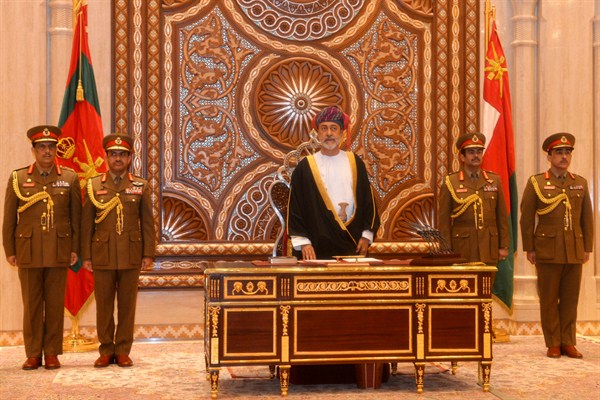For years, a cloud hung over a corner of the Middle East, containing fears of yet another conflict suddenly erupting. They centered on what would happen after the death of the longest reigning monarch in the Gulf, Sultan Qaboos bin Said, who ruled over the Sultanate of Oman for half a century without leaving behind an heir apparent. Qaboos had been ill for years, and yet, if you tried to gently broach the subject of his successor with Omani citizens, they would recoil. The sultan had set up a system for succession and everyone knew it. But no one knew if it would work.
After Qaboos died last Friday, it didn’t take long to find out. By Saturday, his successor —his cousin, Haitham bin Tariq al-Said—had been named to the throne, vowing to continue the policies that turned tiny Oman into a key player in a region of much larger, wealthier and aggressive nations unafraid to pummel, pressure and dominate their neighbors.
It was one final success for Qaboos, a posthumous victory for a soft-spoken man who achieved remarkable feats. The plan was that the royal family would come together after his death and decide on a successor. If after a few days no consensus emerged, they would open a letter in which Qaboos named his choice. But according to Omani media reports, the royal family went straight for the letter, ensuring there was almost no gap between rulers—and no time for unrest and intrigue.

